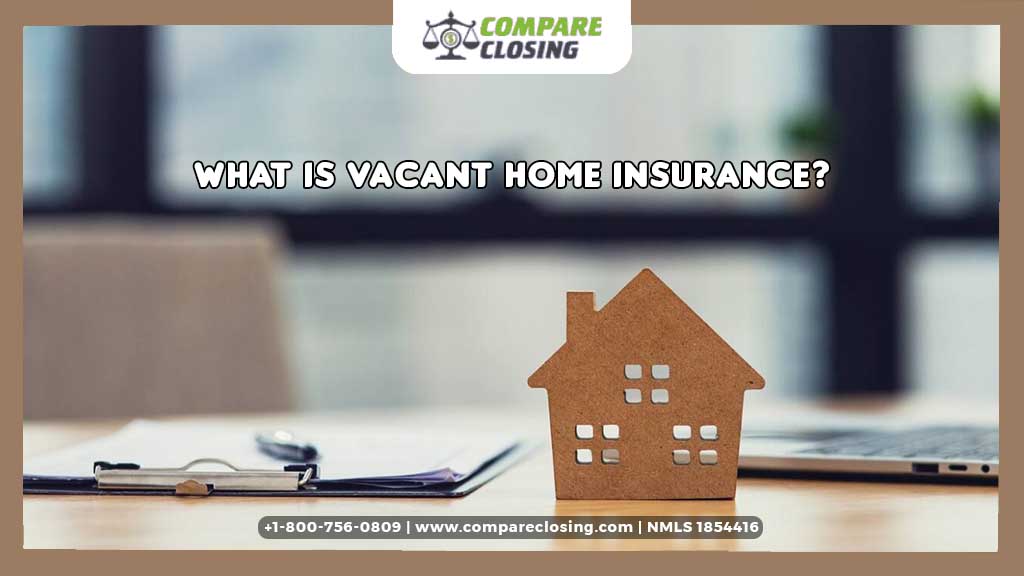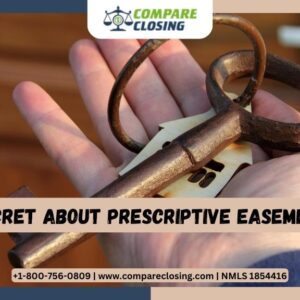Table of Contents
- What Are Netting Escrows & How Does It Work?: The Best Guide - January 2, 2024
- The Secret About Prescriptive Easement: Top Guide 1 Must Know - December 4, 2023
- About Home Equity Loans In Texas And How Can One Obtain It - November 27, 2023
About Vacant Home Insurance
As we all are aware that homeowner’s insurance plays a significant role to protect your home from several types of damages.
However, if you own a property that is vacant or is going to be vacant, your regular homeowner’s insurance policy may not be enough to cover the losses.
Many homeowners can get insurance for their vacant homes or add this coverage to their current home insurance policy. In this post, we will understand what vacant home insurance is in detail.
What Is A Vacant Home Insurance?
Vacation home insurance is a specifically designed home insurance policy for homes that are non-occupied or are considered vacant.
Also called unoccupied home insurance or vacant property insurance, this type of insurance can protect homeowners from financial loss due to unexpected damage that occurs while their property is vacant.
A vacant house is something that is empty and has not been used for a long time, not that it is abandoned or that it will be destroyed.
All it means is that no one resides in the home and does not have any personal belongings.
A house can be vacant for several reasons such as, it is for sale and the sellers have relocated already, this could be a holiday home that is only used for a few months in a year or a house that is being renovated.
Standard homeowner’s insurance does not cover many claims on vacant properties, as they often have vacancy clauses.
These clauses restrict or exclude coverage for vacant properties for a certain period which is generally 30 or 60 days.
The reason behind such restriction is that vacant properties are more prone to vandalism, robbery, and other damage.
Since there is no one to maintain the house, it is also prone to other risks like water or fire damage.
Due to this, the insurance companies prefer not to take the risk (and additional costs) by allowing coverage under a standard homeowner’s insurance policy.
What Is Covered Under Vacant Home Insurance?
Insurance for vacant properties is designed to provide similar protection to a standard home insurance policy. For example, insurance on a vacant house may cover you against losses such as:
- Lightening
- Robbery
- Pipeline Leakages
- Hail
- Riots and civil commotion
- Smoke
- Vandalism
- Wind
- Explosions
- Fire
Your policy should provide a complete list of perils covered while mentioning any exclusion in coverage.
Vacant home insurance can cover the most important types of damages that can occur when a home is vacant, although it does not cover everything.
For instance, If your vacant home is in a flood zone, you might want to add coverage for flood insurance.
How To Buy A Vacant Home Insurance?
First, you should need to determine whether you need to apply for new insurance or you can add coverage to your current homeowner’s insurance policy.
You can modify your current home insurance policy by adding an endorsement to cover your vacant home.
Say you own a rental property, for example, and the tenant has given notice. You are anticipating that it would take a few months to find a replacement tenant and for them to move in.
You can use the endorsement to change your current policy cover until the new tenants are moved in.
A vacant house insurance policy can come in variable terms ranging from three months to twelve months, based on the insurance company.
Your insurance company may have specific guidelines about what type of property they can cover.
For example, some lenders may provide this type of insurance for properties up to four units, while some companies may have a limitation for single-unit homes.
The insurance companies also consider the way the property is being used, the reason for it being vacant, and the property’s age, general condition, and replacement value.
The next step is to get an insurance quote from an insurance company that you decide to go with. By calling the insurance company, you can get more accurate quotes for your vacant property insurance.
They can recommend the right insurance premium, help you choose your policy limit, and get discounts if you qualify. If possible, get quotes from different companies so you can compare them and see which company offers the best coverage according to your requirements.
The last step is to finalize and provide documents required to initiate the policy such as identity proof, ownership proof, current home insurance policy, property value, and vacancy period.
Conclusion
If you plan to leave your home vacant for more than 30 days — whether it’s a vacation home, rental property, or renovation project — you should consider getting a vacant home insurance policy.
This insurance can give you the added peace of mind that your home is protected until someone else moves in.
Typically, coverage is for a specific period and may cost more than standard home insurance due to the risks involved.
Amanda Byford
Amanda Byford has bought and sold many houses in the past fifteen years and is actively managing an income property portfolio consisting of multi-family properties. During the buying and selling of these properties, she has gone through several different mortgage loan transactions. This experience and knowledge have helped her develop an avenue to guide consumers to their best available option by comparing lenders through the Compare Closing business.





